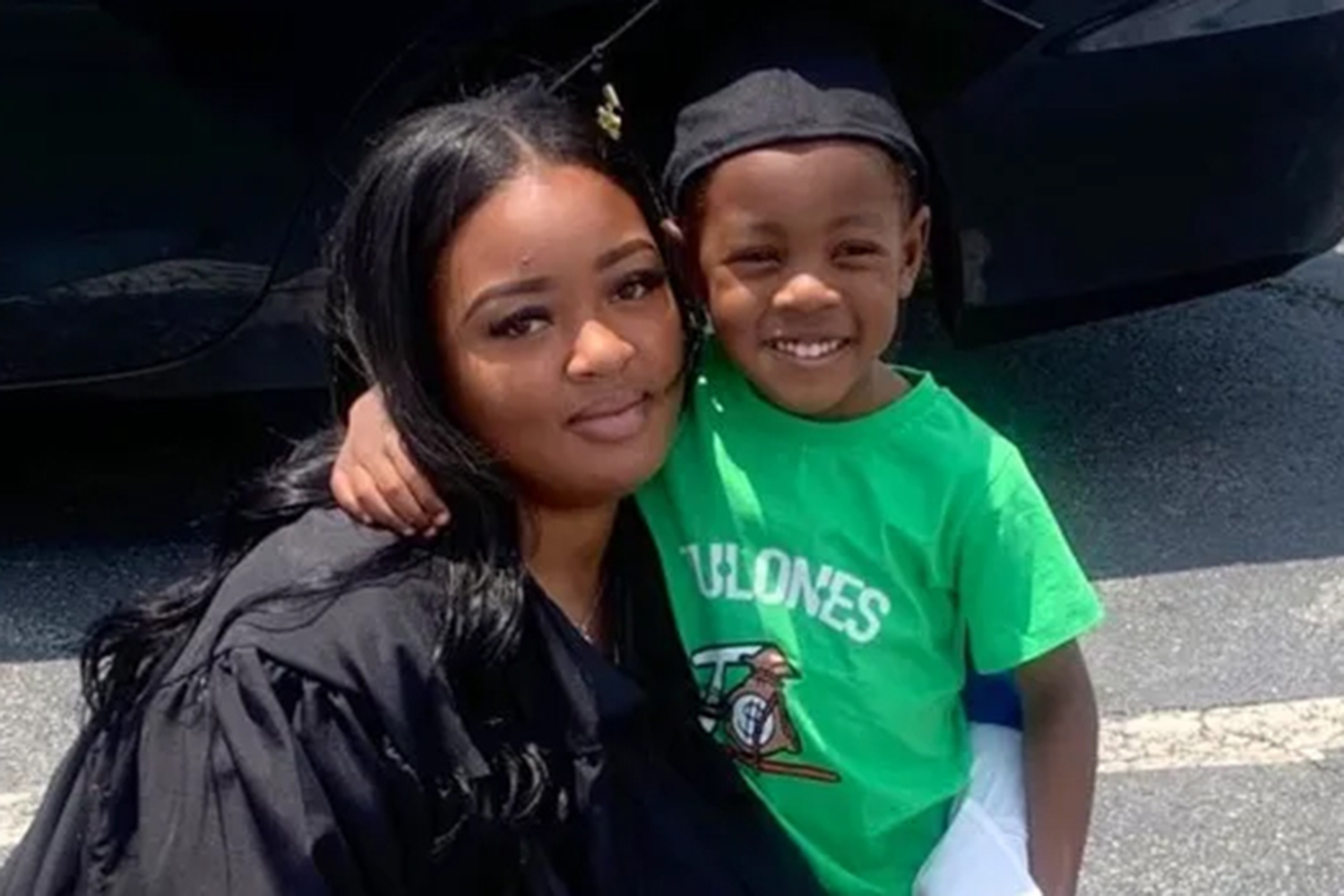Early one morning in February, Adriana Smith, a 30-year-old nurse from Atlanta, was rushed to hospital after her boyfriend found her “gasping for air in her sleep”. Blood clots were found on her brain, but it was too late for doctors to save her and she was declared brain dead.
But Smith was nine weeks pregnant. Under Georgia’s Living Infants Fairness and Equality (Life) Act, it is illegal to end a pregnancy after a foetal heartbeat is detected – breaking this “heartbeat law” could lead to up to 10 years in prison. So for 14 weeks, despite the fact that Smith is legally dead, doctors at Emory Healthcare hospital have kept her on a ventilator, with the aim of delivering the baby via caesarean in two months’ time.
Reproductive rights groups have called Smith’s case the “canary in the coal mine” for how other states with restrictive abortion laws may prioritise the foetus over the mother.
April Newkirk, Smith’s mother, told a local news network it has been “torture” to see her daughter on a ventilator. “We were forced to continue a pregnancy that we didn’t have a choice or a say about,” she said. According to the family, the baby – who they have named Chance – is likely to have severe and life-limiting disabilities if he does survive.
Georgia’s Life Act, which was introduced in 2019 but only enforceable following the overturning of Roe v Wade in June 2022, recognises an “unborn child” as a “natural person”.
The state’s attorney general, Chris Carr, insisted that “there is nothing in the Life Act that requires medical professionals to keep a woman on life support after brain death”, but some legal experts disagree, leaving the hospital in a difficult position. Adding to the confusion,
Ed Setzler, the Republican senator who sponsored the Life act in 2019, has said he is “thankful that the hospital recognises the full value of the small human life living inside of this regrettably dying young mother” and that Emory Healthcare has acted “appropriately”.
Legal experts told The Observer concerns over “foetal personhood” – which confers the same legal rights and protections afforded to people to embryos and foetuses – were likely to be a factor in the decision to put Smith on life support while pregnant. Her doctors could still be charged for a crime such as homicide or manslaughter if they let the baby die.
For Allison Whelan, assistant professor of law at Georgia State university, Smith’s case is a “perfect storm” that illustrates the state of reproductive healthcare in the US as lawyers, doctors, and families grapple with how to interpret abortion bans post-Roe.
At the same time, reproductive rights groups have said Smith’s case was an inevitable reality in states like Georgia where abortion laws and foetal personhood collide.
Newsletters
Choose the newsletters you want to receive
View more
For information about how The Observer protects your data, read our Privacy Policy
Smith is also not the only woman to come face to face with Georgia’s foetal personhood law in recent months. In March, 24-year-old Selena Chandler-Scott was charged with “concealing a death” and “abandoning a dead body” after placing her foetal remains in the bin when she naturally miscarried at 19 weeks.
Although charges against Chandler-Scott were eventually dropped by the county district attorney after the case received national attention, it appeared to be the first time the state’s foetal personhood law had been used to bring criminal charges.
Sally Harrell, a Democratic state senator from Atlanta, has said the Chandler-Scott case “demonstrates the idiocy of foetal personhood” and that it is currently “terrifying for women of reproductive age in Georgia”.
Dana Sussman, the senior vice-president of Pregnancy Justice, which tracks the criminalisation of pregnancy in the US, said she wasn’t surprised to hear Smith and Chandler-Scott’s cases were happening in Georgia.
“What happens with these abortion bans and personhood laws, is that it confuses what a person is. So when they [Smith’s doctors] are forced to potentially face legal repercussions for doing anything to this person, then their hands are going to be tied,” Sussman argues.
According to Pregnancy Justice, 17 states have established foetal personhood by law or judicial decision to apply to criminal law, or both criminal and civil laws, and at least 24 states include personhood language in laws regulating or banning abortion care.
Twelve states enforce bans on abortion at all stages of pregnancy, while three others have bans like Georgia’s after six weeks.
Smith remains on life support and her family, including her seven-year-old son, are left unable to grieve. “We want her to have her baby. We want her life to continue through her children. But the grieving process for us, it can’t even start,” Newkirk said.
Photograph via GoFundMe



